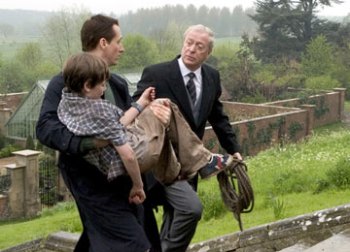Hospitals are the worst places to be when you’re feeling ill. Usually when you’re in any way ‘not quite right’ all you want to do is curl up in your own comfy bed, with easy access to guilty pleasure tv shows and be left alone. Sometimes however you need some extra help and this might be from the doctors at your nearest hospital.
If you have the unfortunate need to come in through A&E, then I offer my sincerest condolences to you. Whether it’s from an accident or illness, you try your best to make yourself look presentable, you wear your best pyjamas, or you try to hide as much of the blood that is dripping from your hand/nose/general body. You register yourself at reception, trying your best to look as ill as possible, because the receptionist might just have the power to bump you up the list. Sometimes you need someone else to give your details, perhaps there’s too much blood pumping out of you to concentrate properly. Then, you turn and look at the waiting area, choosing where you want to sit as quickly as possible, while avoiding the eyes of judgment from the gallery, ‘What’s wrong with her?’ ‘ She looks awful’ ‘ She doesn’t look as bad as me.’
You sit and wait. You become one of the judges as more people file miserably in, you silently question the people sitting laughing and joking, do they really need to be here if they’re well enough to sit chatting happily?
Then the triage nurse comes out. Triage means to ‘sort’ and this is your chance to earn your place at the top of Schindler’s list. If it’s an invisible problem, you need to amplify how ill you feel with many superlative phrases, as the obvious ‘bones sticking out of limbs’ cases are usually considered more urgent. She takes your blood pressure and temperature, which you hope will show up something, just so you’re treated more quickly. You’re asked for to rate your pain between one and ten, this for me is the hardest part. I am now almost always in pain, so for me to be in A&E it is really serious, but I still hear myself saying ‘Oh it’s about a six’ at the very moment when I need to be honest and not a martyr. Whatever number you choose, this is duly noted and then the nurse makes a decision which will determine potentially the next 12 hours of your life. What colour is your case assigned to. For us in Ireland, if you’re assigned to orange, your case is serious and in need of medical attention as soon as possible. Good luck if you’re green, say goodbye to at least a night as you’re considered bottom of the priority list. The triage nurse is however permitted to administer pain relief, so at least if you’re sent back out to the dreaded waiting room, it might be more enjoyable than before.
Whether you’re brought straight through behind the green curtain of A&E, or called hours later, you quickly learn there’s no wizard waiting to fix you up and send you on your way. It’s chaos, no matter what time you enter. There’s never enough trolleys, so there’s lines of chairs as well, assigned to numbers so the doctors know how to find their patients. There’s two types of doctors, A&E doctors are the ones who pick out your file from the colour coded folders on the wall. They are your first response team, they assess you, perhaps are able to treat you if it’s something superficial like a wound. If it’s a deeper underlying problem, then they will refer you to the medical doctors. This is by no means the end of your torture. Depending on another system, the medical doctor may pop around to see you in a few hours, or the following day. You may continue to get pain relief from harried nurses walking swiftly by, but you might not see a doctor for hours. Even with that visit, you might be sent home with advice, and a prescription, or told you need to be admitted. In Ireland, there is a shortage of beds so you may well be left for a full day, on a chair and then promoted to a trolley, before finally hearing the those magic words, “We’ve found a bed for you.” This means within hours, you might get some much deprived sleep in a yet undisclosed ward somewhere in the hospital. A&E is noisy. What’s more, it’s always noisy. They may turn the lights down during the ‘night’ but nothing else stops.
At some point, you are eventually told you’re being moved to a ward, and you silently rejoice to be leaving the headache of A&E behind, when you remember that you’re still in hospital, the nightmare isn’t quite over yet.
